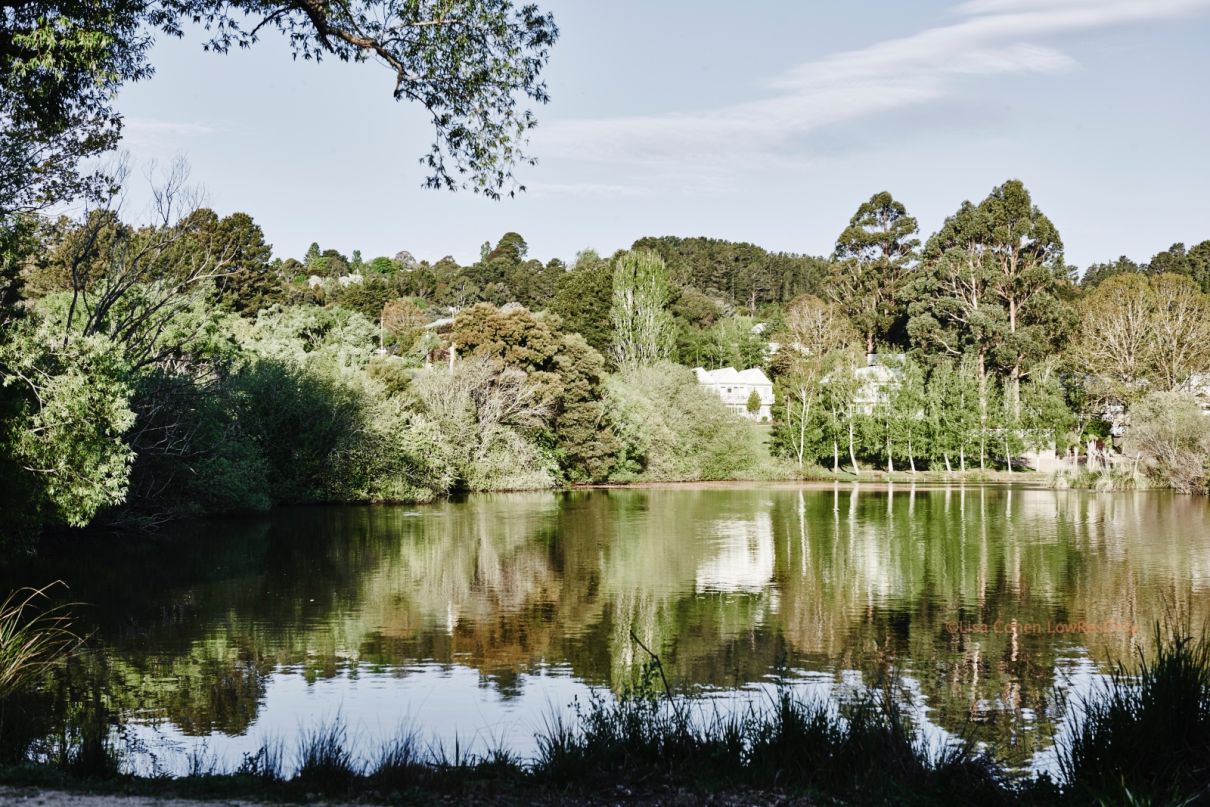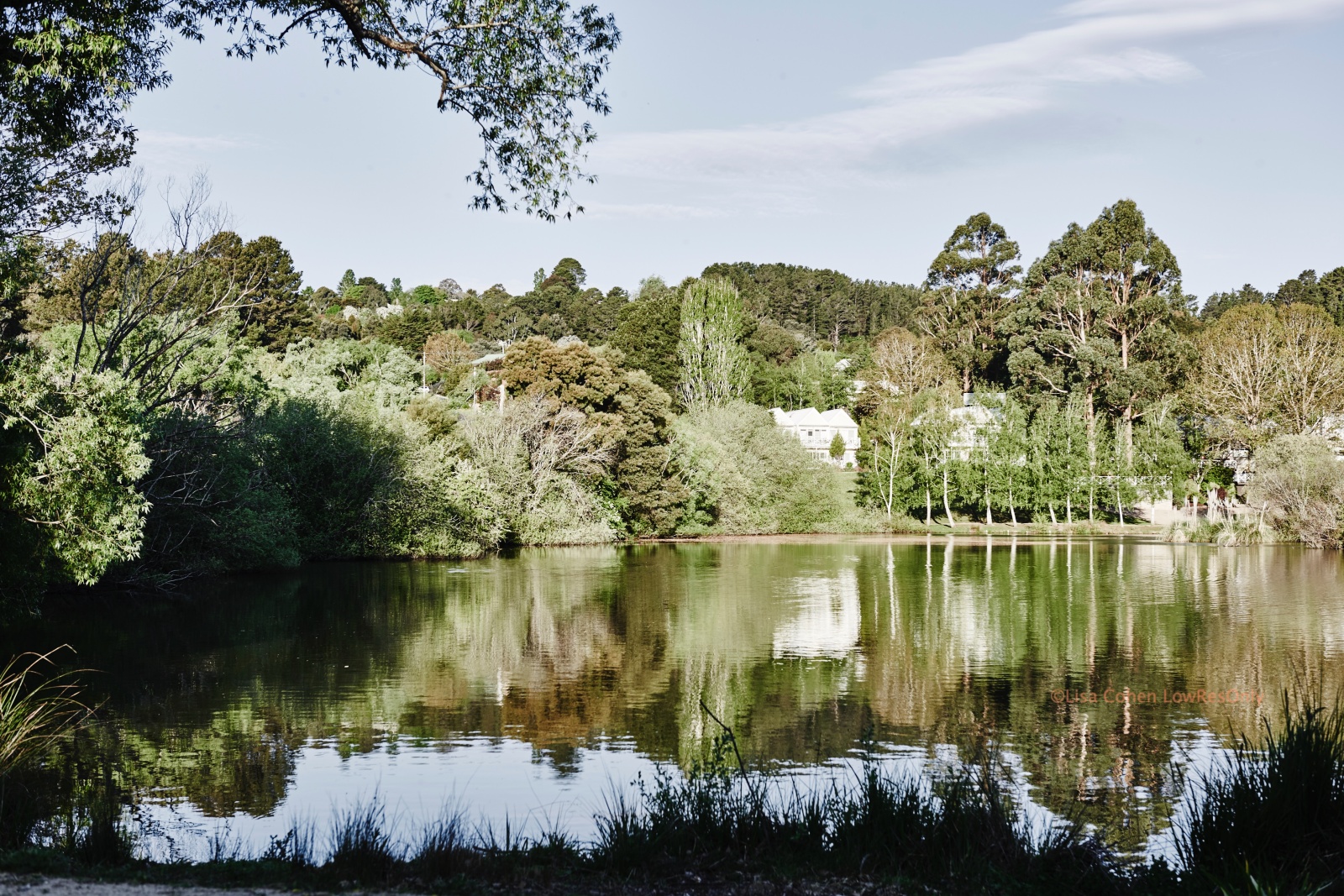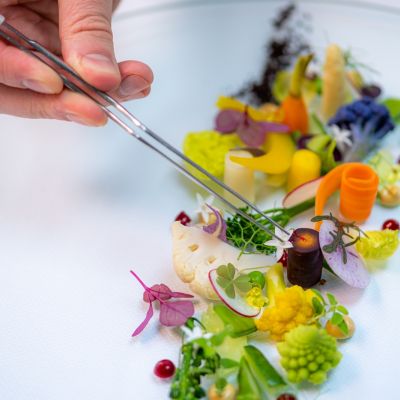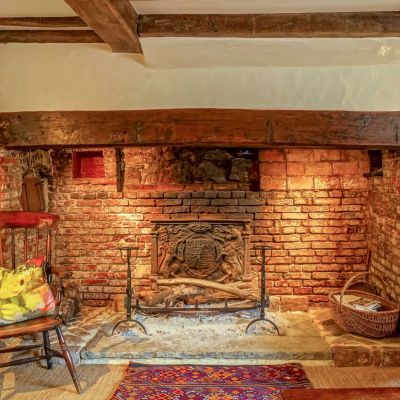A Wolf In The Kitchen

Over four decades Alla Wolf-Tasker has transformed Australia’s food scene, championing local produce and campaigning against industrial food production.

With Melbourne’s skyline quickly disappearing in the rear-view mirror, travellers to Lake House in Daylesford are reminded of Australia’s spellbinding vastness. Dusty paddocks, rolling fields and forests of gum trees remind you that cities are but a tiny speck on the country’s landscape. What matters here is space, fresh air and sunlight, elements in abundance that encourage vitality and health in ways that many countries could only dream.
This spot, barely an hour’s drive north west of Victoria’s capital, is home to a restaurant and luxury lodge run by Alla Wolf-Tasker, a woman who has done more than almost anyone to champion local produce and fight industrial food production. Indeed, in the final few miles before arrival, handmade signs selling ‘fresh garlic’ and ‘Fairtrade horse poo’ show that her spirit has also helped to inspire the immediate region around her.
With characteristic Australian reticence and humility, she’d never admit as much, but exactly four decades on since starting what would eventually become Lake House, her impact is everywhere. If Wolf-Tasker herself were a recipe, she’d combine the warmth and homeliness of Nigella with the social activism of Jamie Oliver, before a final sprinkling of Julia Child’s love of France.

In fact, it was while working as a chef in France that she discovered a culinary sense of place that had hitherto been lacking in Australia.
“When I first saw produce come in the door of three Michelin-starred kitchens in France, I just fell in love with it. In Australia, people were celebrating their wealth by having things sent over from halfway around the world or from other seasons — like strawberries in winter — to show how sophisticated you were. Over there, restaurants would have these little bowls of supplies from around them, from relationships that had been forged by previous generations. But I also didn’t realise the impact. Local produce provides transparency. It leaves money in the small community and locals recognise that they have become among the most important people there, precisely because they are growing food. We’ve lost that with globalisation in food.”
Her own restaurant, complete with elegant suites overlooking the lake, has won it all. More than 70 ‘hats’ from the Australian Good Food Guide, the country’s equivalent of Michelin stars, Australia’s Best Wine List from Gourmet Traveller and dozens more.

At breakfast, lunch and dinner, stunning produce from its own gardens or farm that sits just a few miles up the road is crafted into beautiful but unpretentious plates of food. Under dappled sunlight breaking through the leaves above us, an al fresco lunch of heirloom tomatoes with a house curd, tomato consommé, compote, milk skin and summer herbs was sublime.
A subsequent afternoon stroll to Daylesford’s picturesque High Street reveals how it has become a must-visit for regional and global gourmands. Behind 19th century shop fronts that wouldn’t look out of place in a cowboy film, artisans are baking beautiful breads and pastries, teasing chocolate creations or stuffing sausage skins with pork that has been smoked over red gum wood. Countless local wines are on offer in restaurants, bars and liquor stores, while farmer’s markets ensure that the stunning local bounty of fruit and vegetables are proudly on display.
While Daylesford is undoubtedly a food lover’s dream, it wasn't always so. Wolf-Tasker explains that 40 years ago: “Australia had no regional restaurants. If you drove out into the regions, you took a picnic because you weren’t even guaranteed that there’d be a grocery shop that would sell anything other than sliced white bread and very bad sausages. So, for me to come back from France and think I could build a destination restaurant here was a bit bizarre!”
Happily, she persevered and today she continues to champion organic and hyper-local produce, now very now on-trend, because that was the way her Russian immigrant parents raised her.

“The Carrot ” (c) Lake House
“My parents managed to buy this decrepit little miner’s cottage and mum turned the backyard into this amazing orchard and garden. We had chooks, fruits and vegetables, crops, fermenting cabbages at the back, mushrooms in the autumn, all kinds of stuff. Mum was a forager, she never went out without a basket and would always come back with something, maybe beets and plums, while she knew a lot about herbs because she grew up on a farm. I have that in me.”
That respect for the integrity and health benefits of produce extends to her horror when faced with issues such as battery farming or the madness of importing food from thousands of miles away.
“Have you ever poured boiling water over apples to remove the wax? They’ve probably been grown in the UK, sent to South Africa to be waxed because it’s cheaper there, then sent to Hong Kong to sell because now they look beautiful. Pour boiling water over them and see what happens.”
Today, she continues to campaign tirelessly for changes in awareness of and legislation around food. Whether it’s developing kitchen and garden programmes in local schools, appearing on Australia’s Masterchef TV show, judging young chefs or produce awards or simply encouraging local food culture and producers, it’s clear that her energy and drive is as relentless and vital as ever.
This article originally appeared in Billionaire's Health Issue, December 2019. To subscribe contact









